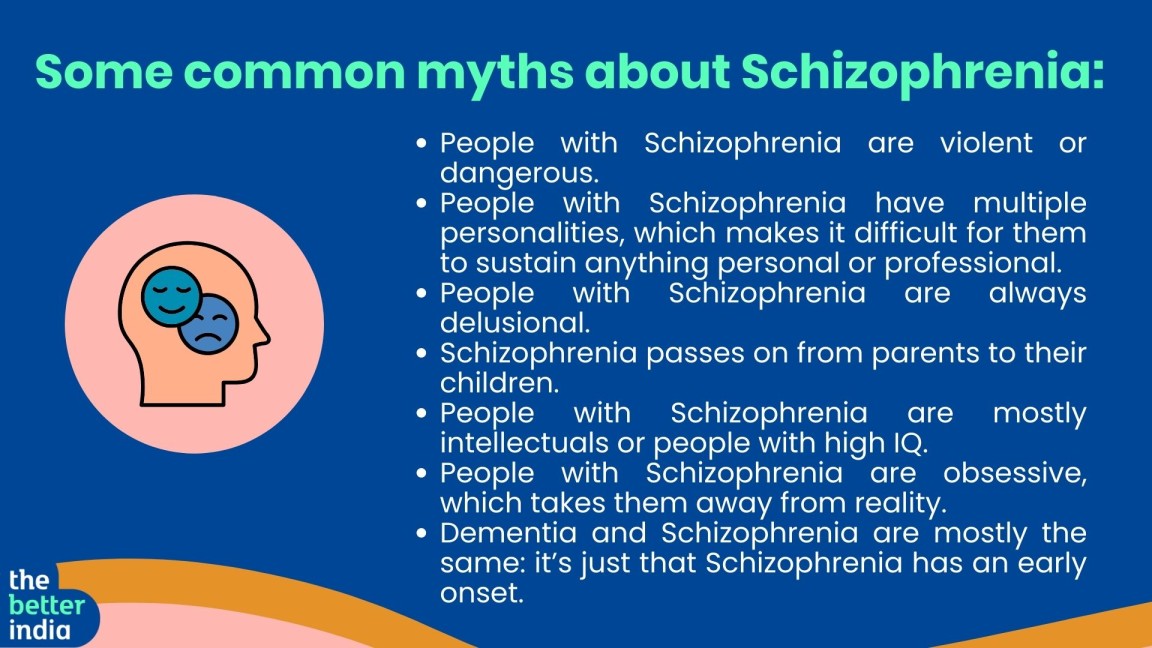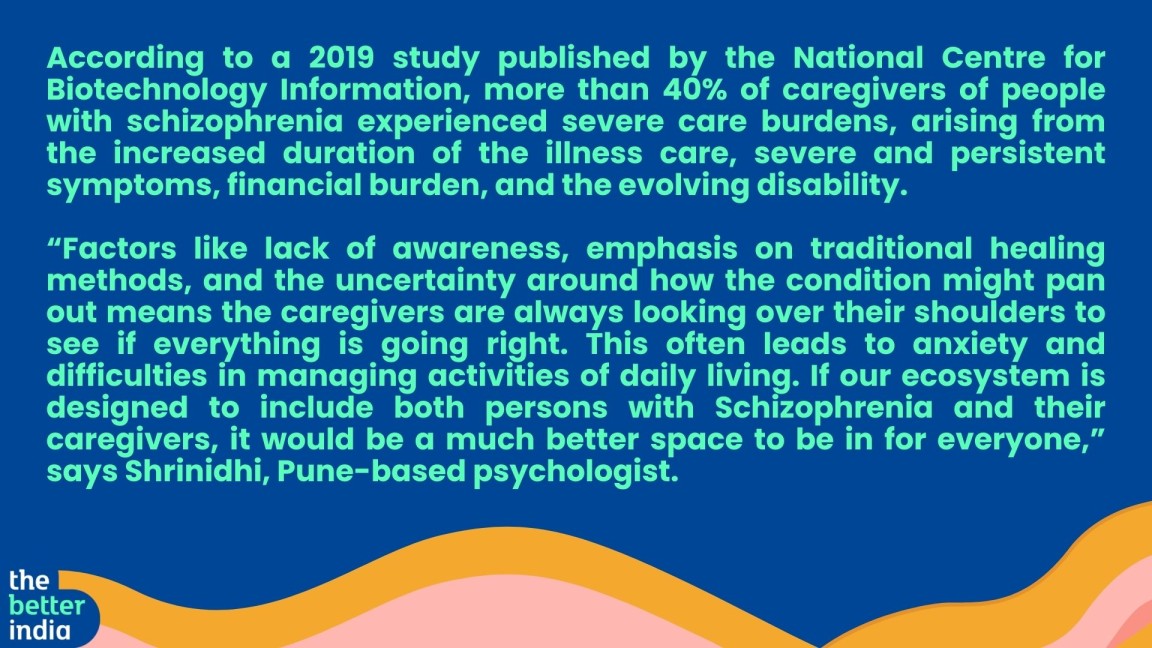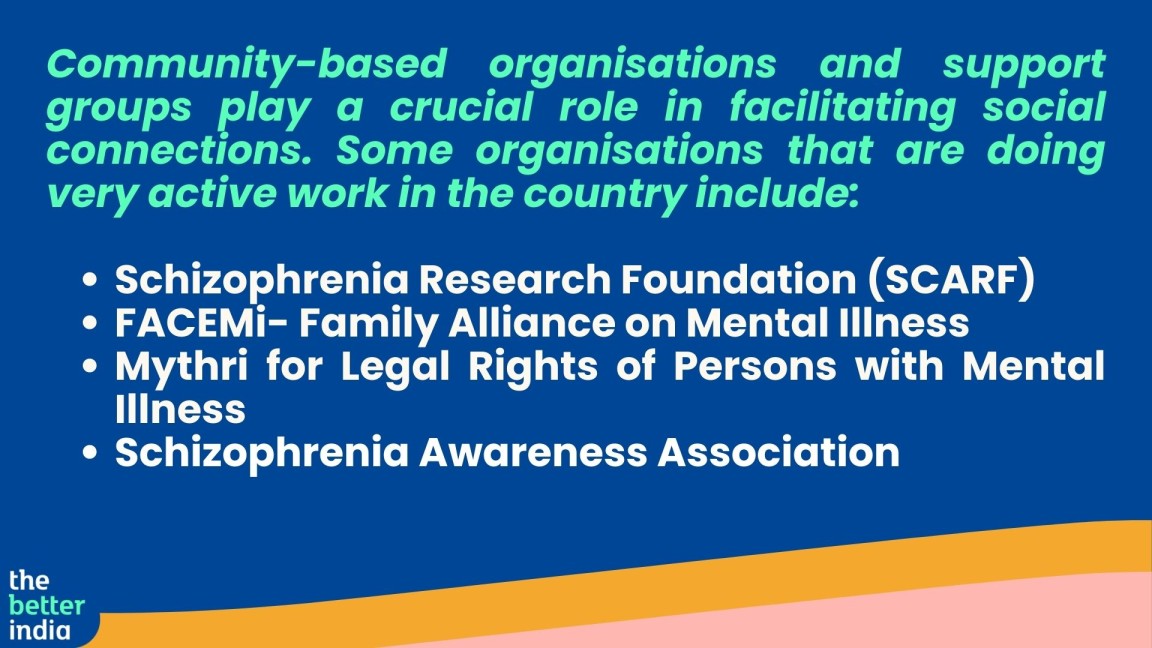I Live With Schizophrenia; Here’s What I Want People Around Me to Understand
Schizophrenia is often regarded as the most severe among all mental illnesses, but people living with it are not hostile, aggressive, or “wild”, as they are often believed to be. There are many ways we can build individual and community support for those living with the disorder.

“My mother has been my rock throughout. It’s a tough journey, and the space to rediscover and reimagine relationships is critical. We found some common ground and re-established our relationship as a mother and son. This was probably the most significant when I started my journey with Schizophrenia,” says Reijul Sachdev, an author and PhD scholar who was diagnosed with Schizophrenia in 2015.
Though Reijul began noticing symptoms much earlier, it took him a while to articulate them and seek help.
First, there was a gradual aversion to the colour purple, where just the sight of it would cause him intense feelings of paranoia. “Just sitting in a room would make me imagine that people were talking to me. It would be distracting for others. And at times, I would get violent,” he recalls. Eventually, he was diagnosed with a subtype of schizophrenia termed Paranoid Schizophrenia, which is characterised by symptoms like delusions and hallucinations.
The term ‘schizophrenia’ comes from the Greek words schezein (to split) and phrenos (mind). It is a complex mental health condition that results in psychosis — a set of symptoms that makes a person lose touch with reality.
Schizophrenia can disrupt the way the brain processes information, resulting in hallucinations, delusions, lack of emotions, confusion, trouble with logical thinking, and so on. A combination of factors such as genetics, brain chemistry, stress or drug abuse can trigger these symptoms.

‘The barriers of our mind and society are difficult to surpass’
The World Health Organization estimates that around 24 million people live with Schizophrenia globally. In India, the numbers settle around 3.5 million, according to a research study by Global Burden of Disease (2019); which makes it 1 in every 3,000 people.
The disorder is often regarded as the most severe with extreme consequences among all mental health disorders. That said, people with Schizophrenia are not hostile, aggressive, or “wild”, as they are often believed to be. According to a study published in the International Journal of Social Psychiatry, 40-70% of individuals with Schizophrenia in India can live independently with varying levels of support from family and mental health professionals.

The stigmas associated with Schizophrenia, as well as the fear of judgement, affects one’s ability to reveal their mental health conditions and seek treatment, further fueling a cycle of internalised shame, stigma, low self-esteem and overall exhaustion due to masking symptoms.
“I live with a combination of Schizophrenia and ADHD, and rely on both medicines and psychological therapy to manage my symptoms,” explains Delhi-based Anita. “Even though I may have everything going right in a very ‘checkbox’ fashion, it’s possible that I may be struggling with something invisible — the dark narrative that is occurring in my brain.”
“It’s a lonely existence. Though there are many of us, we don’t have the means to support each other. The barriers of our mind and society are difficult to surpass,” she notes, adding that she has slowly put together a close group of people whom she trusts on Instagram
How having a supportive community can help
Living with Schizophrenia presents unique challenges to the individual and their loved ones, but with the right support, care, and understanding, everyone involved can lead fulfilling lives. Here, Reijul talks about what worked for him on his quest with schizophrenia, which he calls “the king of all mental illnesses”.
1. Get family buy-in and support: “My mother has been my greatest support throughout. When I started treatment, she told the doctors that they’d only do whatever I was comfortable with,” says Reijul. This gave Reijul the confidence that he was not alone, as well as the courage to look forward to the next day and work on himself.
2. Seeking help: Reijul tells us that he first sought therapy, followed by psychiatric help. It was only through consistent medication and therapy that he was able to rebuild his confidence, resume college to complete his degree, and graduate with a gold medal. “It is extremely important to trust your therapist and doctor, and one should never tamper with the treatment on their own, as doing that can be catastrophic.”
3. No one-size-fits-all approach: Since the symptoms vary for different people, the course of treatment, accommodations, etc, should be based on the challenges that the individual experiences.
4. Be ready to take baby steps: “When my condition started improving, I realised that I wasn’t where I used to be before my diagnosis. It was important to take baby steps, have faith in myself, and trust my caregivers and doctors.”
Patience and perseverance are extremely important for the individual as well as the caregivers as they tread the road to recovery. It is important to not compare oneself with others.
5. Engage in hobbies: “I solved maths puzzles and started writing poetry to keep my brain cells charged. Being able to do that also helped me feel better about myself,” says Reijul, who has two publications to his name. Journaling is also a good option, he says, as it offers an outlet for one’s thoughts and emotions, and helps one track medications and practice self-care. The trick is to start small and be consistent.
6. Caregivers need care too: Caregiving is a community effort, rather than just a responsibility of the parents. “In addition to my primary caregivers — my parents — there were many others who were around to support and chipped in.”
“One of my friends stopped by everyday — even on days when I locked myself in a room — just to check how I was doing. My grandmother, my close set of friends, my driver: everyone did what they could in their capacity and stood up not just for me, but also for my parents.”
Such a support system is important for caregivers too, because at the end of the day, the marathon is equally long and exhausting for them as well.

On finding meaning through his trials with the condition, Reijul says, “In every freak, there lives a Superman.”
Independent living, access to comprehensive care and therapy, supportive relationships, inclusive workplaces, engaging hobbies, and vibrant social life are crucial elements in managing schizophrenia effectively. By fostering an environment that promotes awareness, empathy, and inclusivity, we can create a society that supports the well-being and potential of individuals living with schizophrenia. If you found our stories insightful, informative, or even just enjoyable, we invite you to consider making a voluntary payment to support the work we do at The Better India. Your contribution helps us continue producing quality content that educates, inspires, and drives positive change. Choose one of the payment options below for your contribution- By paying for the stories you value, you directly contribute to sustaining our efforts focused on making a difference in the world. Together, let’s ensure that impactful stories continue to be told and shared, enriching lives and communities alike. Thank you for your support. Here are some frequently asked questions you might find helpful to know why you are contributing?


Written by v-shesh; Edited by Divya Sethu
This story made me
-
97
-
121
-
89
-
167












